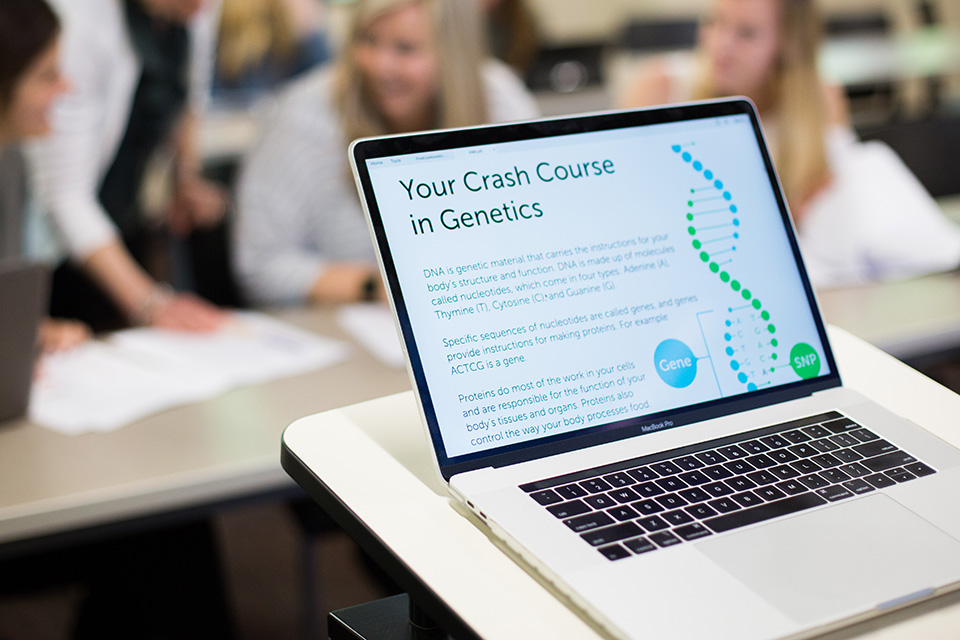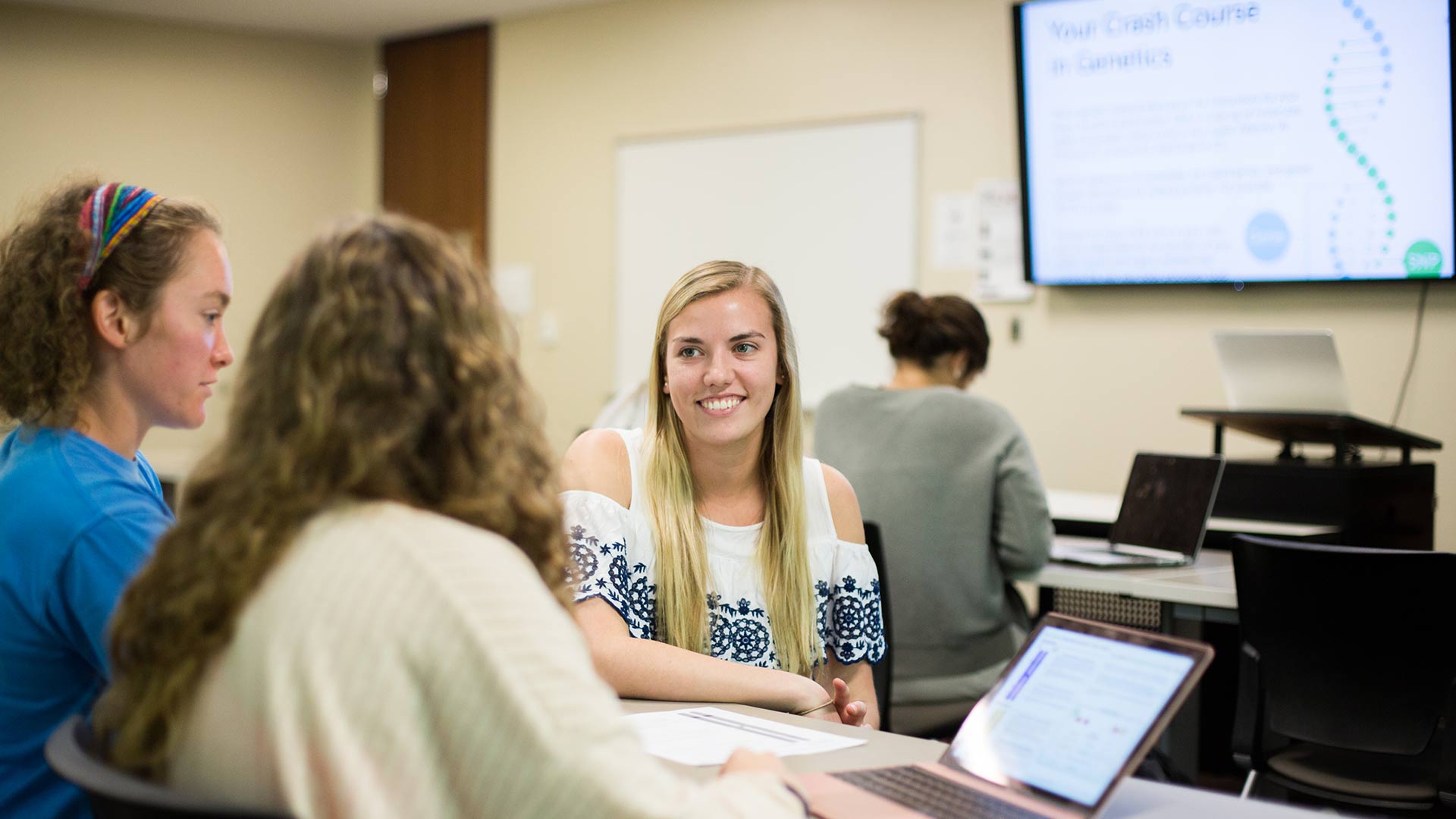What if a simple DNA test could tell you the exact foods you should eat to lose weight, maintain a healthy lifestyle or prevent a chronic disease? This is the foundational question students address in Nutrigenomics, a required course for all senior nutrition and dietetics majors.
“With the amount of DNA kits available on the market, one could easily be misled by its marketing. These kits say that by knowing your DNA sequence, or your genotype, you can be told precisely what you should eat to prevent complex chronic diseases like obesity, diabetes and cardiovascular disease,” said Suresh Mathews, professor and chair of the school’s Department of Nutrition and Dietetics. “But the fact is, this isn’t true. We’re not quite there.”
Yet in this age of precision medicine, the field of nutrition and dietetics is moving in that direction. “There is definitely hope,” Mathews said.
“Who would have guessed that in 2003, the entire human genome would have been sequenced? In the field of precision medicine, it’s important to have a dream and something to work toward, but you also have to be very cautious.”
As an upper-level course, Nutrigenomics is designed to provide students with a foundational understanding of concepts involving gene expression by dietary nutrients. The course challenges students to investigate the complex interactions between diet, genotype and phenotype as they pertain to metabolism, health status and chronic disease risk.
“With today’s research, it would be misleading for a registered dietitian to counsel a patient with personalized recommendations based on his or her genotype. The body of evidence simply does not yet exist,” Mathews said. “But through this course, we challenge students to come to their own conclusions.”
The class begins by laying a foundation, discussing specific examples of associations between genotype and the interaction with diet and disease that are commonly known. As the course progresses, students use this foundation to look at their own genotype with a direct-to-consumer nutritional DNA kit. “With this project, students get to evaluate the scientific evidence for themselves, assessing what the kits say they should eat based on their genetic code,” Mathews said.
Students are not required to use their own DNA for the project, but Mathews explains they are always excited at the opportunity. Using these kits, students submit a sample of their DNA to be tested by a company based in Atlanta, receiving their results in a matter of weeks.

“Samford’s Nutrigenomics class opened my eyes to genetics and precision medicine, and using the DNA kits provided a real-life application that I really enjoyed,” said Hope Etheridge ’18. “My results were not super surprising; I felt like most of it was based on loose or generic claims. But it was interesting that my results noted a gluten sensitivity. I was just diagnosed with a sensitivity to gluten months before.”
Etheridge said she was continually amazed by what this course taught her about her genetic makeup, fueling a new passion for the field of genetics. “There is still so much more information to uncover,” she said. “I just can’t wait to see the impact this research will have.”
Become a Registered Dietitian
The pathway to becoming a registered dietitian starts by earning a Bachelor of Science in nutrition and dietetics, and then followed by a dietetic internship. At Samford University, we offer both.
Learn More

